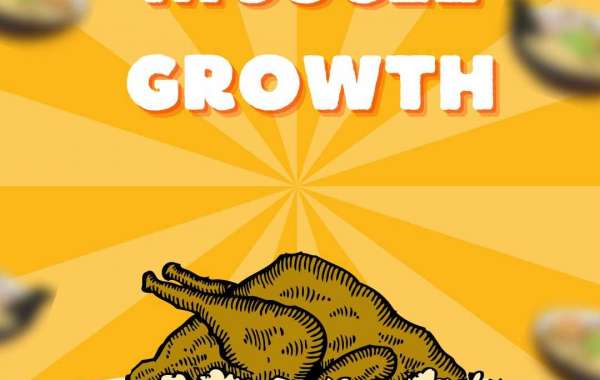Are you tired of hitting the gym relentlessly without getting the desired muscle gains? Then get ready to fuel your workout with the ultimate growth and recovery fuel - Protein! Protein is a macronutrient that is indispensable for muscle growth and recovery. It is made up of amino acids that are the building blocks of muscles. The more you consume it, the more you grow!
Protein is not only limited to bodybuilding but is essential for everyone because it strengthens and repairs tissues, produces enzymes and hormones, and regulates body fluids. Our daily diet might not be enough to meet the protein requirement, which is why protein supplements come into the picture.
Therefore, from now on, be sure to get enough protein into your diet and watch as your muscles build like never before!
Understanding Protein
Our body need protein for muscle growth and repair because it is made up of the chemical building blocks known as amino acids. There are 20 distinct amino acids and various protein sources contain varied proportions of each one. Our bodies deconstruct protein when we eat it into its component amino acids, which are subsequently used to create and repair muscle tissue.
Protein comes in a variety of forms, including whey, casein, soy and pea protein. Because the amino acid composition of each protein source varies, it's crucial to eat a range of protein sources to give our bodies access to all the essential amino acids for healthy muscle growth and recovery.
Around 1.6-2.2 grammes of protein per kilogramme of body weight per day are advised for those looking to grow muscle. However, this may differ according on elements including age, sex, level of activity and fitness goals. To determine the ideal protein consumption for your unique needs, it is always preferable to speak with a doctor or qualified dietitian.
Keep in mind that while protein is essential for muscle growth and recovery, it is not the only element. For general health and fitness, it's crucial to consume a balanced diet that's rich in fruits, vegetables, whole grains and healthy fats. For best results, vary things up and include a range of protein sources in your diet.
Sources of Protein
Let's speak about protein's sources now that we've already covered what it is and why it's crucial for muscle growth and recovery. As is common knowledge, protein can be obtained from both animal and plant sources.
Given their high protein content and abundance in vital amino acids, animal-based protein sources are among the most well-liked choices for people trying to grow muscle. Meat, poultry, fish, eggs and dairy products are some of the most popular animal-based protein sources.
For vegetarians, vegans and anyone wishing to add more diversity to their diets, plant-based protein sources are a fantastic choice. Beans, lentils, tofu, nuts and seeds are good sources of plant-based protein.
So, when is the best time to consume protein for muscle growth? Therefore, studies indicate that consuming protein soon after exercise might dramatically increase muscle protein synthesis and speed up recovery. Additionally, eating protein-rich foods frequently can promote muscle building by ensuring your body receives a consistent supply of vital amino acids.
Protein should be ingested in moderation, it's vital to keep in mind, as too much might result in weight gain and future health issues.
Supplementation with Protein
Protein is essential for muscle development and recuperation, as we all know. However, what if your diet isn't providing you with enough protein? Supplements containing protein can help in this situation.
Whey protein, casein protein, soy protein and a variety of other types of protein supplements are among the numerous available on the market. Choose the protein supplement that is best for your body type and fitness objectives because each form of protein supplement has certain advantages.
The most popular protein is whey, a quick-absorbing protein that promotes muscle growth, repair and recovery. The sluggish absorption of casein protein, on the other hand, makes it the perfect food to eat before bed or in between meals.
Since soy protein is a complete protein source and contains all nine essential amino acids, it's a wonderful choice if you're seeking for plant-based protein supplements.
The finest protein supplement for muscle growth and recovery should be chosen depending on your tastes, body type and fitness objectives.
Make sure, however, that you are aware of any possible negative effects before you begin using protein supplements. Kidney troubles, intestinal disorders and other health concerns might result from an excessive intake of protein supplements. Before introducing supplements into your diet, it is usually advised to get the advice of a dietitian or medical specialist.
Remember, supplements are supposed to be an addition to a balanced diet, not a replacement. So consume it wisely and in moderation.
Maximizing Muscle Growth with Protein
Let's discuss the best ways to use protein to promote muscle building, as now that we are aware of the many protein supplements available and their potential adverse effects.
For muscle growth and recuperation, it's important to include protein in your pre- and post-workout meals. It is advised to eat meals high in protein at least 30 minutes before and after working exercise, such as eggs, chicken, fish and nuts.
What protein intake is excessive, though? Well, ingesting an excessive amount of protein won't always result in increased muscle growth. Depending on your fitness objectives and degree of exercise, a daily protein intake of 1.6 to 2.2 grammes per kg of body weight is advised for building muscle.
Maintaining a balanced diet with enough protein, carbs and healthy fats is crucial for maximizing muscle growth.
In conclusion, protein is without a doubt the best fuel for building muscle and recovering from exercise and using protein supplements properly will help you reach your fitness objectives more quickly. Just keep in mind to take supplements in moderation and to always put an emphasis on a healthy diet.
Protein and Exercise
Let's talk about the role of protein in exercise. Protein is essential to the process of muscle growth during resistance training, one of the most efficient ways to achieve this goal. Your muscle fibres become micro-tears when you engage in resistance training, such as weightlifting. A sufficient protein diet aids in the regeneration of those fibers, making them stronger.
Protein, however, is necessary for more than simply muscle building. It also aids with muscular discomfort and recuperation. You can return to your workouts sooner if you consume enough protein, which can aid lessen muscular discomfort after exercise and speed up recovery time
Therefore, it's crucial to prioritize your protein consumption if you're serious about muscle growth. The best way to maximize your gains is to eat some protein both before and after your workouts.
Conclusion
When it comes to building and repairing muscle, protein is the ultimate goal. But keep in mind that anything in excess might be dangerous. Make sure your diet is balanced and that you are getting enough protein. For best benefits, include protein in your pre- and post-workout meals. Happy lifting!










